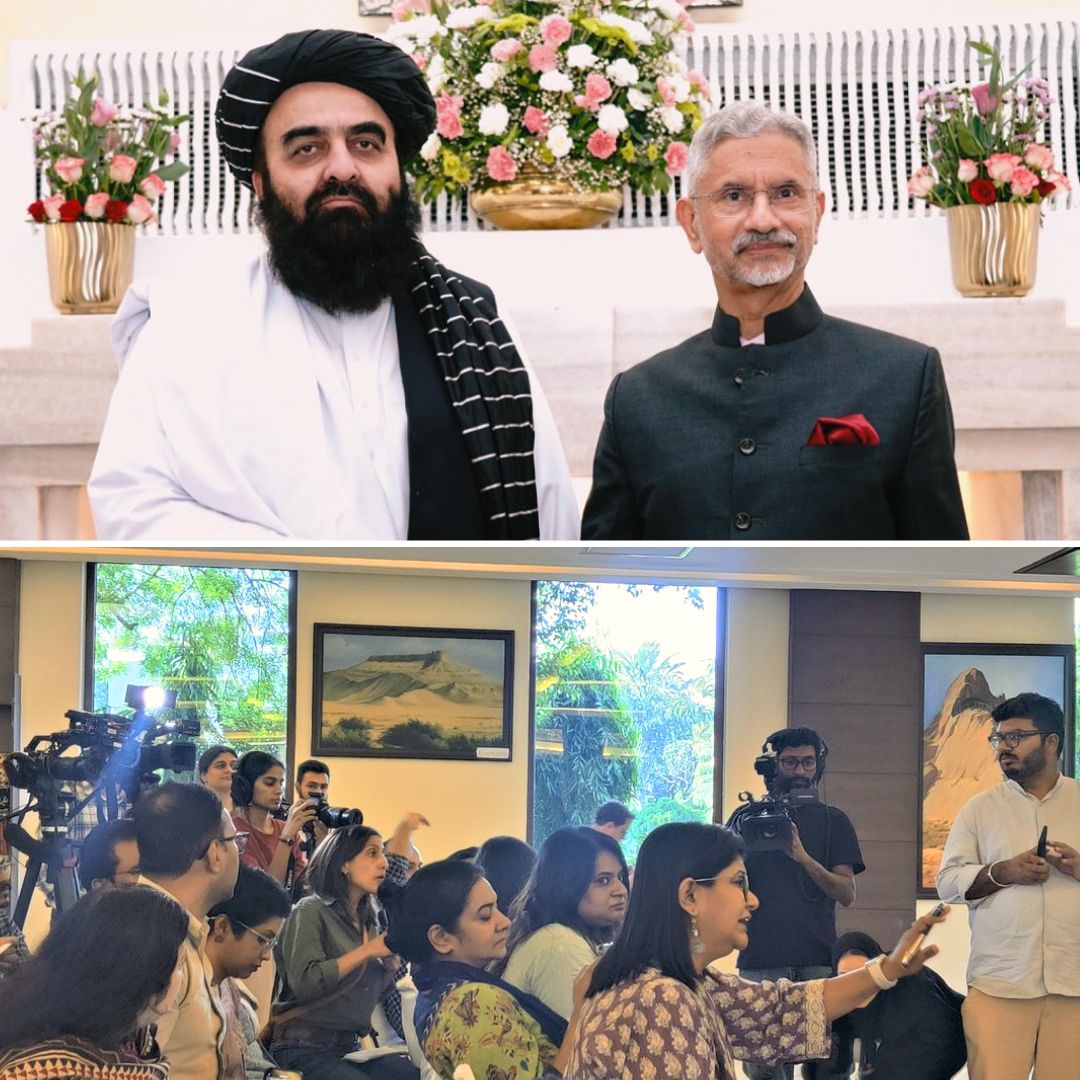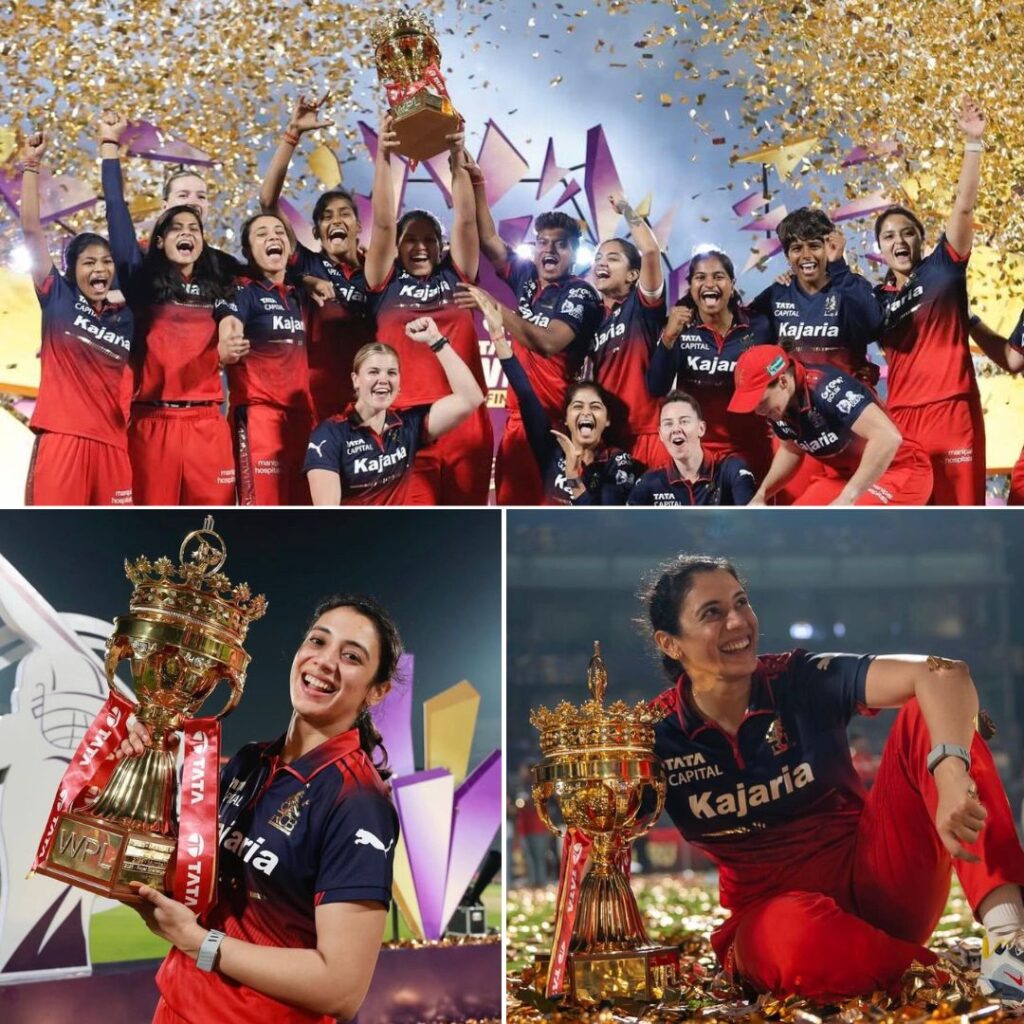Afghan Foreign Minister Amir Khan Muttaqi held a second press conference in New Delhi on October 12, 2025, which included women journalists, following widespread anger over their exclusion from the initial briefing held two days earlier.
The Minister attributed the earlier exclusion to a “technical issue” concerning an invitation list that was short and specific, denying any deliberate intent to discriminate against women. The incident drew sharp criticism from Indian media, political leaders, and advocacy groups who called for gender inclusivity and equal media access.
The Ministry of External Affairs clarified it was not involved in organising the first press meet. Muttaqi’s subsequent inclusion of women journalists was seen as a response to these concerns and a gesture towards better representation.
A Clarification and Inclusion at Second Briefing
During the follow-up press conference, Minister Muttaqi explained that the initial event was arranged on short notice and involved a limited list of participants chosen by embassy staff. “It was more of a technical issue,” he said. The Afghan official expressed regret over the exclusion and reiterated the importance of engaging with all journalists regardless of gender.
The second press meet included women journalists seated prominently, with several describing the environment as respectful and open for questions. This event marked an attempt to rectify the earlier oversight and accommodate wider media representation during the Minister’s first official visit to India amidst ongoing diplomatic efforts.
Public and Political Backlash Following Exclusion
The initial press conference, organised shortly after Muttaqi’s discussions with India’s External Affairs Minister S Jaishankar, sparked immediate outrage for barring women journalists. The Editors Guild of India and Indian Women’s Press Corps condemned the exclusion as a blatant gender discrimination and a setback for media freedom.
Indian opposition leaders, including Rahul Gandhi and Priyanka Gandhi Vadra, criticised the government for permitting the exclusion to occur on Indian soil. These voices framed the exclusion as indicative of broader gender biases and called for stronger advocacy of women’s rights nationally and internationally.
The Ministry of External Affairs firmly stated it was not involved in arranging the first briefing, seeking to distance itself from the controversy. The public criticism underscored the sensitivities surrounding women’s participation in media and public discourse.
Wider Context: Women’s Rights in Taliban-led Afghanistan
Since the Taliban’s return to power in August 2021, Afghanistan has faced intense global scrutiny due to restrictive policies on women’s education, work, and public roles, including media participation. The exclusion of women journalists during Muttaqi’s initial press conference was symptomatic of the continuing challenges to gender equity under the current regime.
The incident attracted global media attention particularly because of Muttaqi’s diplomatic engagement with New Delhi, where diplomatic ties remain tentative and closely watched. The episode spotlighted the fragility of women’s rights and press freedom, raising questions about the consistency of the Taliban’s commitment to inclusivity on international platforms. It also highlighted the broader struggle for recognition and respect for women’s voices in Afghan society and beyond.
The Logical Indian’s Perspective
The Afghan Foreign Minister’s corrective action in including women journalists in the follow-up press conference is a positive development that must not be overlooked. However, what remains concerning is how easily institutional oversights or systemic biases can undermine the representation and inclusion of women in critical spaces.
True progress in peace and coexistence demands accountability and proactive measures to ensure gender equity and freedom of the press are upheld unwaveringly. Incidents like this remind us of the importance of constant vigilance and engagement to create spaces where every voice is valued and heard.
After the outrage, Indian women journalists were seen occupying front row in Afghanistan’s embassy in New Delhi during Talibani Foreign Minister’s PC.
— Shantanu (@shaandelhite) October 12, 2025
Kudos to Priyanka Gandhi Ji & Rahul Gandhi Ji for raising this issue.
Talibani-RSS mindset cannot snatch the rights of women. pic.twitter.com/QMnmyJp8NI
इस महिला पत्रकार को सलाम 👏
— अपूर्व اپوروا Apurva Bhardwaj (@grafidon) October 12, 2025
जिसने वो सवाल पूछने की हिम्मत की,
जो पूरी दुनिया पूछने से डरती है।
तालिबान के विदेश मंत्री मुत्ताक़ी से सीधा सवाल —
"जब ईरान, सऊदी, सीरिया और देवबंद तक में लड़कियाँ पढ़ती हैं,
तो अफ़ग़ानिस्तान में क्यों नहीं?"
और साथ ही पत्रकार दानिश सिद्दीकी की… pic.twitter.com/9nATK5t4hM












